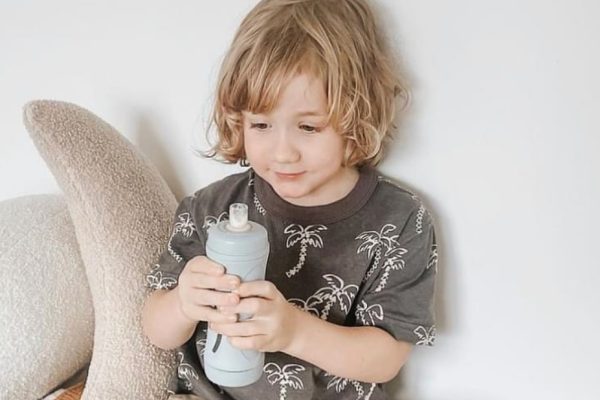
Party tips from the professionals
The invitation arrives to attend a birthday party! As a parent of a child with special needs this is a bittersweet experience. You are so happy that a kinder or school family have embraced inclusion but at the same time you know that the afternoon could be a smashing success or result in a meltdown and tears (yours or your child’s!).
If your child is under seven then it’s normally okay for you to attend, but as they get older you are more expected to drop off and things might go pear shaped if you haven’t prepared!
Here are some great tips from Occupational Therapist Robyn Duregger and Physiotherapist Melissa Locke. OT:
Preparation, preparation and preparation!
We know that new and unpredictable environments are difficult for the vast majority of us, and are likely to cause anxiety for a child with heightened sensory sensitivities. So preparation is the key. Consider visiting the location of the party with your child, prior to party day. That may be the friend’s home, local playground, or a noisy indoor play centre.
What are the triggers likely to be in that environment, for your child? Is it the noise, space, ‘party food’? A visit early on may help you think through potential triggers, and consider potential solutions. This could be as simple as requesting a particular table in the party room of an indoor play centre, or finding an appropriate quiet area in the playground.
What are your child’s centreing/calming tools, and which of those are appropriate to take? Armed with information from the host, you may find it’s quite okay to take your child’s pop-up hideout tent and headphones, or set up a drawing area away from the crowd, or to pop some trains in your bag and know where the sand pit is.
Is a social story appropriate for your child? This might include expected behaviours, a sequence of events, who will be there. Of course this requires some information from the party host – if there’s going to be a clown at the party or a reptile man passing around snakes – you need to know!
Some children would benefit from a visual schedule and without turning into a control freak and taking over the party, you may be able to discuss the timing of some structured and unstructured games with the host.
Is your child able to tell you when they need a break? It’s okay to do so, and it’s also okay to leave early when you can see your child has had enough. The singing of the ‘happy birthday’ song is sometimes a distressing time for children with sensory sensitivities. It may be the excitement (cake’s next!), the fact that everyone tends to gather around ‘nice and close’, or the singing itself. If you know this is likely to be a trigger, think about your positioning – stand at the back, pop on those headphones (if your child has and loves them), or provide a sensory tool (a great time for chew toys).
I’m confident you’ll find the majority of party host mums and dads will go out of their way to include your child, and will be happy to make some minor adjustments to help the day go smoothly for ALL the children. All you need to do is ask.
Written by Robyn Duregger – Paediatric Occupational Therapist at North Coast Therapy on the Sunshine Coast in Queensland.
Physio: Key points to remember
Accept the invitation (if your child wants to go!) – Ring the parent and do some gentle investigating. How many children are attending? What activities are happening? Is the park, hall or home accessible for your child’s needs? What toilet facilities are there, if required? Indoor rock climbing parties for example, are not fun if you can’t participate. Facilities may have modified harnesses and specialised instructors.
A conversation with the host asking about this is best done a week before the event, not as you arrive at the venue!
Let the host know if your child is super sensitive to noises, allergic to latex or certain foods. – Accept that your child might not need to stay for the whole time. Many a party for anyone is made memorable by leaving before things turn ugly!
Consider sleep times for your child or how much stimulation or party food they can cope with. This is true for all of us!!!
Make sure that you can stay for the main event – cake cutting, puppet show, face painting! Explain to the host beforehand that you may not stay for the whole event.
Don’t be a helicopter parent! Let events unfold and watch from afar. Often another parent or child will step in to make suggestions about how games or activities might work better for your child.
Most of all, celebrate the event! As a parent of a child with special needs, you can be a great educator of other parents on how to make a party inclusive.
– Pin the tail on the donkey/rabbit might be done sitting down or on a board that can be placed at different heights or on a wheelchair tray.
– Donut eating competitions will have different length strings from the clothes line and everyone can lie down, sit or kneel to play the game.
– Statues games might be more about what great shape or posture you can make – rather than being still.
– Pass the parcel can be wrapped in scarves which are easy to unwrap.
– Jumping castles work well as do dress up parties and face painting.
– Dancing is always fun.
– As high school comes along birthdays are more likely to be movie nights or out to the local pizza restaurant. Accessibility and food tolerances as well as numbers attending are the major hurdles, but by that time, friendships are often cemented and your child’s friends anticipate their needs, whilst your child is confident to explain what works well!
Written by Melissa Locke FACP, APAM – Specialist Paediatric Physiotherapist at Movement Solutions in Queensland. www.movementsolutions.com.au







